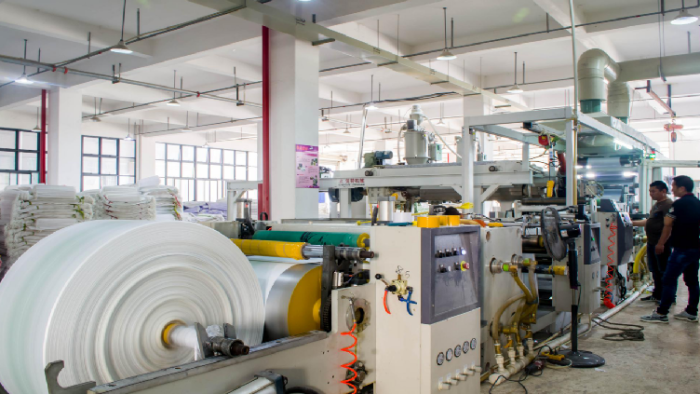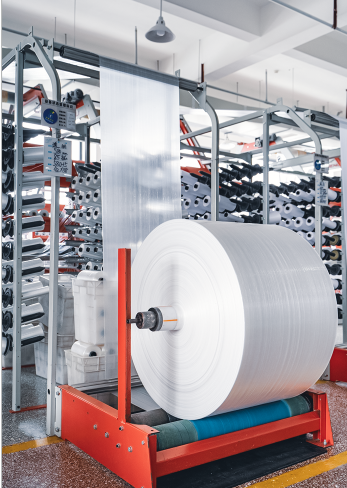
The production process of how polyethylene bags are made involves extruding melted polyethylene resin into a thin film, which is then cooled, printed (if necessary), and formed into bags through cutting, folding, and heat-sealing processes.
Polyethylene bags are used in various industries due to their versatility, durability, and affordability, providing reliable packaging solutions for products ranging from food and beverages to industrial and retail goods.
Their lightweight nature also makes them convenient for both manufacturers and consumers, contributing to their widespread adoption.
The process begins with melting polypropylene resin pellets in an extruder, heated to high temperatures to form a viscous liquid.
The molten polypropylene is then forced through a flat die, which shapes it into a continuous, thin film of uniform thickness.
The hot polypropylene film is rapidly cooled using air or water to solidify it into a flexible sheet.
This cooling process is crucial for setting the desired properties of the material, such as its strength and flexibility.
Once cooled, the polypropylene film may undergo printing to add designs, logos, or product information onto its surface.
Various printing methods include flexography or gravure printing.
The printed or plain polypropylene film is then fed into bag-making machines, where it undergoes several steps to transform it into finished bags.
These machines cut the film into the desired dimensions, fold it into shape, and heat-seal the edges to form the bags.
After the bags are formed, they may undergo additional processes such as trimming excess material, adding handles or closures, and quality control checks to ensure they meet specifications.
Xifa Group is a leading manufacturer of polypropylene bags, specializing in polypropylene woven bags.
With state-of-the-art manufacturing facilities and stringent quality control measures, Xifa Group ensures the production of high-quality polypropylene bags that meet industry standards.
Their polypropylene woven bags offer exceptional strength, durability, and tear resistance, making them ideal for packaging various goods in industries such as agriculture, construction, and food packaging.




